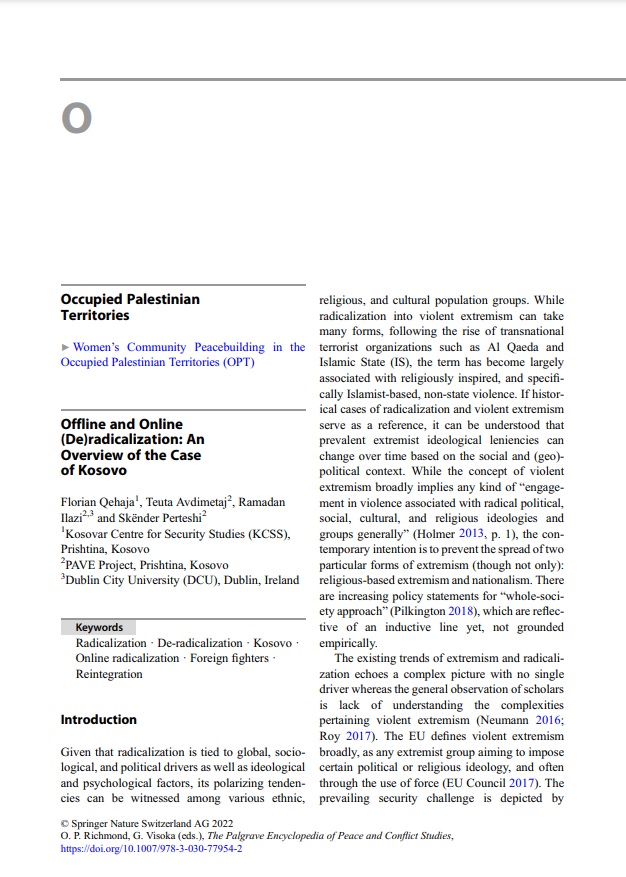7/06/2021

The Palgrave Encyclopedia of Peace and Conflict Studies
PAVE Project
Florian Qehaja , Teuta Avdimetaj, Ramadan Ilazi and Skënder Perteshi
Given that radicalization is tied to global, sociological, and political drivers as well as ideological and psychological factors, its polarizing tendencies can be witnessed among various ethnic, religious, and cultural population groups. While radicalization into violent extremism can take many forms, following the rise of transnational terrorist organizations such as Al Qaeda and Islamic State (IS), the term has become largely associated with religiously inspired, and specifically Islamist-based, non-state violence. If historical cases of radicalization and violent extremism serve as a reference, it can be understood that prevalent extremist ideological leniencies can change over time based on the social and (geo)- political context. While the concept of violent extremism broadly implies any kind of “engagement in violence associated with radical political, social, cultural, and religious ideologies and groups generally” (Holmer 2013, p. 1), the contemporary intention is to prevent the spread of two particular forms of extremism (though not only): religious-based extremism and nationalism. There are increasing policy statements for “whole-society approach” (Pilkington 2018), which are reflective of an inductive line yet, not grounded empirically.